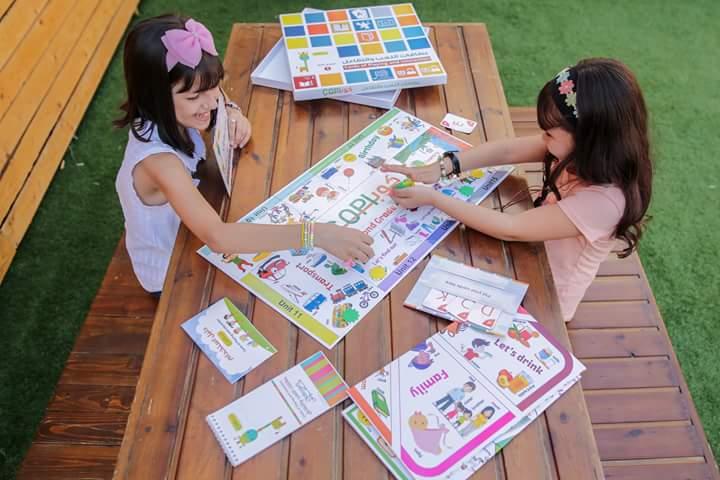COPI creates innovative non-formal learning tools for the younger generation
Amal Aljojo, an English graduate from Gaza, made it her mission to invest in the younger generation. With her company COPI, a start-up producing creative and non-formal learning tools and games, she wants to create a better future through education.
Amal graduated from the Faculty of Education at the Al Quds Open University in 2011 and she’s always been passionate about exploring new and innovative teaching methods. When the now 29-year-old mother started teaching English for students aged 6 and up, she noticed her students had a lot of trouble learning the language because they didn’t like to study and wanted to play more instead.
This is how Amal came up with the idea to create the COPI game. She worked hard to create an appealing learning environment for children by integrating games and entertainment in the learning process. The first method she used was a set of interactive cards with English letters to teach the alphabet, spelling, and vocabulary in a competitive manner. The results were great and it motivated her to develop her ideas further and create a start-up to reach as many students as possible.
The biggest challenge was producing the game. It was important to create a high-quality product, using the materials available in Gaza, at an affordable price. Another challenge was marketing and promoting the product in the local community, in an affordable way. But with the help of consulting specialists in the education field, Amal was able to produce the first version of her COPI box after a year. The prototype turned out to be very successful.
In 2016, the Business Women Forum (BWF) in Palestine launched the “I’m a pioneer 2016” award, funded by the Bank of Palestine. Amal was one of the three entrepreneurs to win a $2.500 award, out of 1200 contestants.
COPI is now incubated within IGU’s Business and Technology Incubator (BTI) under the BSIS 2 project, which is funded by the European Union and implemented by Enabel. BSIS offers Amal counseling, mentorship, and assistance in business development, marketing, and start-up registration. This enabled her to develop her business even further and to promote and sell her product in 8 locations in Gaza and the West Bank. With the money she received from the BWF competition, in addition to her own funding, she was able to fully launch her start-up and produce 10.000 versions of the COPI game.
COPI also won the Ministry of Women's Affairs' "She Can" project, funded by the Italian Agency for Development Cooperation. COPI project was selected as one of the top 10 applicants and was awarded $700.
Latest news from this project
No news

